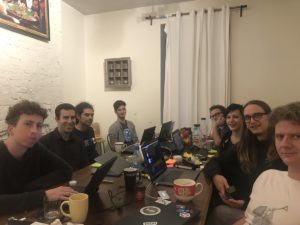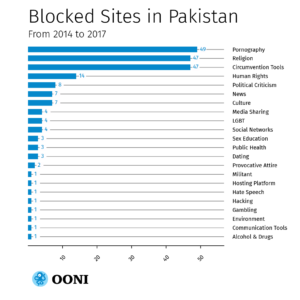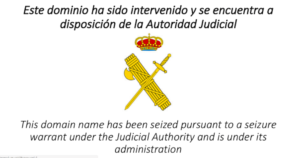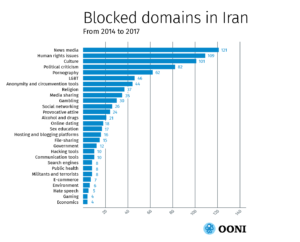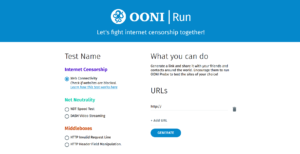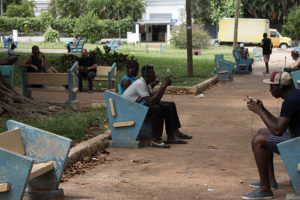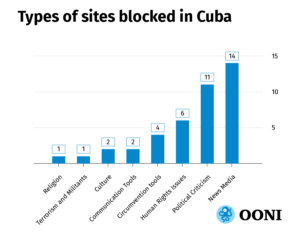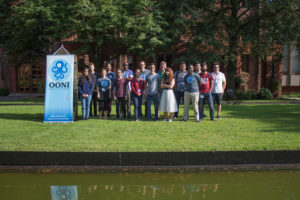Right before the Tor meeting, the OONI team gathered in Montreal for a 4-day meeting to reflect, regroup, hack, and plan.This post shares information from our meeting and future plans with the broader community. All session notes are available on GitHub.Read this post here.Publication date: 20th October 2017Publisher: Open Observatory of Network Interference (OONI)
Category: Internet censorship
Oct 19
Internet Censorship in Pakistan: Findings from 2014 to 2017
We confirm detection of 210 blocked URLs in Pakistan. Explicit blockpages were observed for many of these URLs, while others were blocked by means of DNS tampering.Many of the blocked URLs are considered blasphemous under Pakistan’s Penal Code for hosting content related to the controversial “Draw Mohammed Day” campaign. Geopolitical power dynamics appear to be reinforced through the blocking of sites …
Oct 19
Evidence of Internet Censorship during Catalonia’s Independence Referendum
We confirm the blocking of at least 25 sites related to the Catalan referendum by means of DNS tampering and HTTP blocking, based on OONI Probe network measurements collected from three local networks. OONI data shows that these sites were blocked every day from (at least) 25th September 2017 (when the testing started) leading up to the referendum day, …
Oct 19
Internet Censorship in Iran: Findings from 2014 to 2017
Thousands of ooniprobe network measurements collected from 60 local networks across Iran over the last three years have confirmed the blocking of 886 domains.Read the full research report here.Publication date: 28th September 2017Publisher: Open Observatory of Network Interference, Article19, ASL19, Small Media
Oct 19
OONI Run: Let’s fight internet censorship together!
OONI released OONI Run, a website linked to an exciting new OONI Probe mobile app feature that enables you to: Engage your friends (and the world) to run censorship measurement tests Monitor the blocking of your website around the world OONI Run includes a variety of OONI Probe software testsdesigned to: Test the blocking of websites Find middleboxes Measure the speed and performance of …
Aug 29
Report: Measuring Internet Censorship in Cuba’s ParkNets
Image by Arturo Filastò (CC-BY-SA-3.0)OONI network measurement data, collected from eight vantage points across three Cuban cities between 29th May 2017 to 10th June 2017, confirms the blocking of 41 websites. Deep Packet Inspection (DPI) technology, which we suspect to be located in Havana, was used to reset connections to those sites and serve (blank) block pages. …
Aug 29
Measuring Internet Censorship in Cuba’s ParkNets
Last May, the Open Observatory of Network Interference (OONI) team visited Cuba. We ran a variety of network measurement tests in Havana, Santa Clara, and Santiago de Cuba with the aim of measuring internet censorship.This post provides an overview of our study.Read the post here.Publisher: The Tor ProjectPublication date: 28th August 2017
Aug 25
Measuring the Internet for Freedom
Internet censorship enables governments to manipulate public discourse and erode citizens’ rights. But a five-year-old software program called ooniprobe allows users to fight back.Read this commentary here.Publication date: 22nd August 2017Publisher: Project Syndicate
Aug 19
OONI Partner Gathering 2017
Recently we hosted the first OONI Partner Gathering.This two day event was hosted at the University of Toronto on 10th and 11th July 2017.The event brought our international partners together to share skills, knowledge, and research findings on the study of internet censorship. It also provided us the opportunity to reflect on our collaboration over …
Jun 20
#EgyptCensors: Evidence of recent censorship events in Egypt
Starting on May 24th, the Egyptian government ordered ISPs to block at least 21 news websites on the grounds of “supporting terrorism and spreading lies”. In an attempt to understand which sites were blocked and how, ooniprobe network measurement software – designed to examine internet censorship – was run in three local vantage points in …

